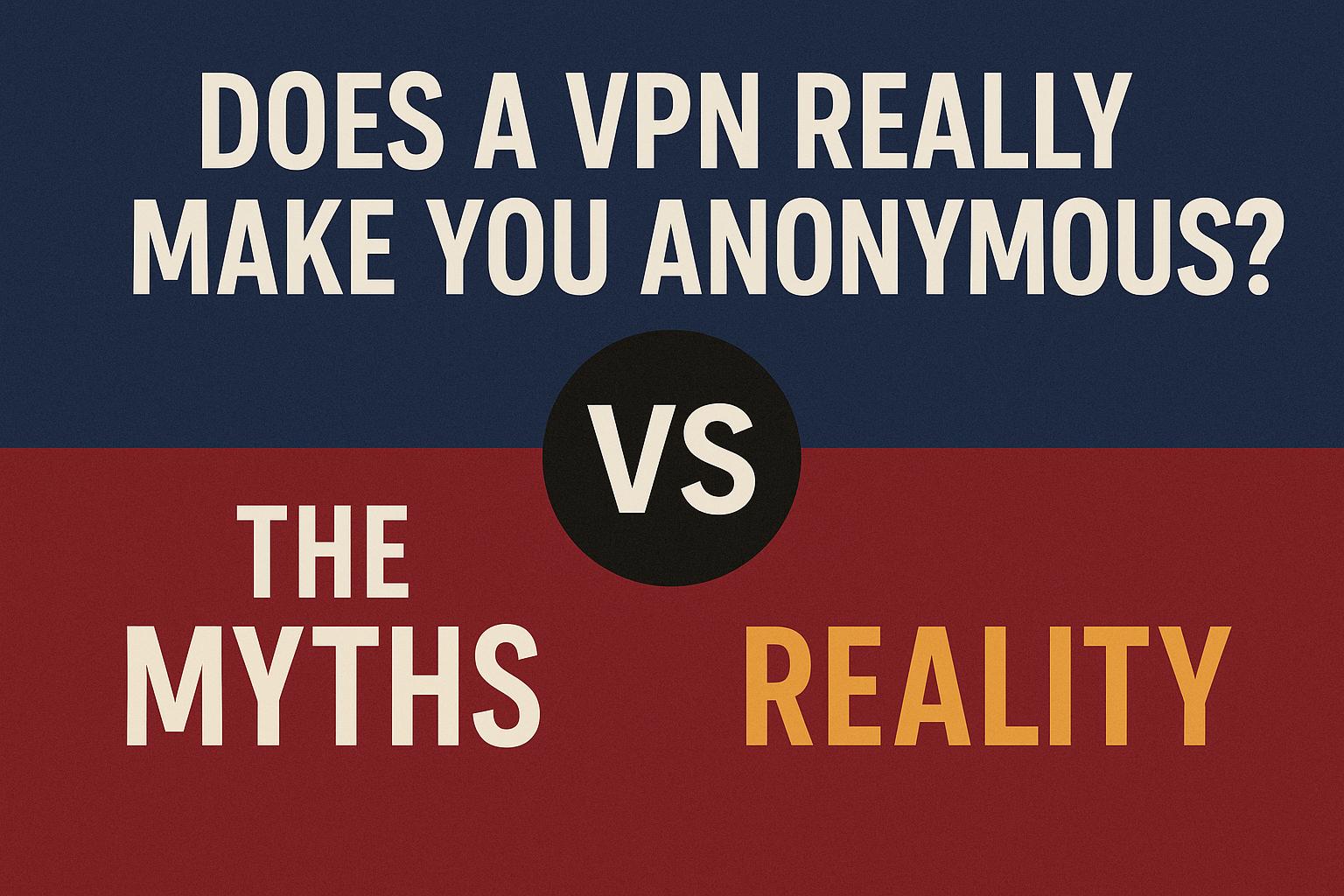Introduction
Does a VPN Really Make You Anonymous? VPN companies often advertise themselves as “making you anonymous online.” But is that actually true?
The reality is more complicated. While VPNs improve your privacy and security, they don’t make you completely invisible. In this article, we’ll separate the myths from the facts and explain exactly what a VPN can and can’t do for your anonymity.
1. What a VPN Actually Does
When you connect to a VPN:
- Your IP address is hidden – websites see the VPN server’s IP instead.
- Your internet traffic is encrypted – stopping ISPs, WiFi hackers, or advertisers from seeing what you do.
- You can bypass location restrictions – appearing to be in another country.
👉 That’s a huge step towards privacy. But anonymity is a bigger challenge.
2. What a VPN Cannot Hide
Even with a VPN, certain data can still reveal who you are:
- Accounts you log into – if you sign in to Gmail, Facebook, or Netflix, those services know it’s you regardless of your IP.
- Cookies & trackers – websites use tracking cookies, browser fingerprinting, and ads to recognise you.
- Device fingerprinting – your browser, screen size, fonts, and plugins form a unique “digital fingerprint.”
- Payment methods – buying something online with your real credit card links the purchase to you.
👉 A VPN hides where you’re connecting from, not who you are.
3. Does a VPN Really Make You Anonymous Myth vs Reality
Myth 1: “A VPN makes you completely anonymous.”
❌ False. It protects your connection but doesn’t erase all traces of your identity.
Myth 2: “VPNs stop websites tracking me.”
⚠️ Partly true. They hide your IP, but cookies and fingerprinting can still identify you.
Myth 3: “Free VPNs are just as good.”
❌ False. Many free VPNs log your activity and sell it to advertisers. That’s the opposite of anonymity.
Myth 4: “VPNs make me untraceable by the law.”
❌ False. A VPN doesn’t make illegal activity legal. Authorities can still trace you through accounts, payments, or poor VPN providers.
4. The Role of VPN Logging
Your level of anonymity depends heavily on your provider.
- No-logs VPNs – claim not to store user activity.
- Some providers – keep connection logs (times, IPs).
- Worst-case – free or shady VPNs that store and sell your browsing data.
👉 Always choose a trusted VPN with an independent audit proving their no-logs policy.
5. How to Increase Anonymity Beyond a VPN
If your goal is maximum anonymity, a VPN alone isn’t enough. Combine it with other tools:
- Private Browsers – Brave, Tor Browser.
- Ad Blockers & Anti-Tracking – uBlock Origin, Privacy Badger.
- Cookie Management – clear or block third-party cookies.
- Anonymous Payments – prepaid cards, crypto (where accepted).
- Tor over VPN – advanced users can chain Tor + VPN for extra privacy (though speed suffers).
6. The Bottom Line
- VPN = privacy and security tool
- Hides IP address.
- Encrypts traffic.
- Prevents ISP/ WiFi snooping.
- VPN ≠ total anonymity
- Doesn’t hide account logins.
- Doesn’t block cookies or fingerprinting.
- Doesn’t protect against poor personal security habits.
👉 A VPN is an excellent first layer of protection, but true anonymity requires combining multiple tools and good digital hygiene.
Does a VPN Really Make You Anonymous Conclusion
So, does a VPN make you anonymous? The short answer: no.
It hides your IP address, encrypts your data, and improves your privacy massively – but it doesn’t erase your identity online. To stay truly anonymous, you need to think about the bigger picture: your browsing habits, the services you use, and the tools you combine with your VPN.
🔗 Learn more:


